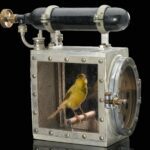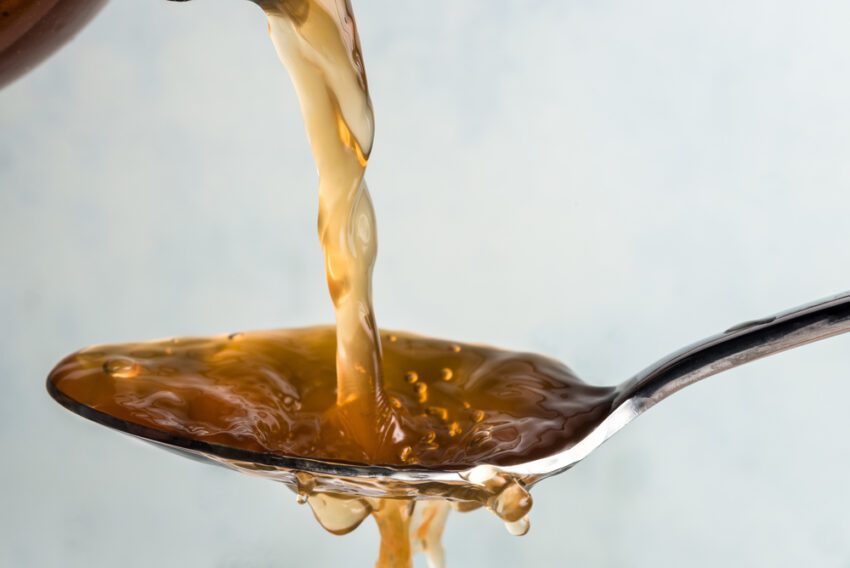
What’s up with apple cider vinegar (ACV)?
When researching “alternative” medicine products, you have to wade through an ocean of people making all sorts of claims. The big problem is the sales pitch for a bogus product can sound very similar to that for a legitimate product.
Apple cider vinegar (ACV) is an excellent example of a product with proven medicinal properties, but so many fantastical claims are made about it that it seems like snake oil. Often you will see claims that it cures any medical condition (endorsed by people with “Dr” or “MD” in their names, so it must be true) and conspiracy theories about how the medical establishment is conspiring to keep this secret from you. Like many things, the truth is somewhere in the middle.
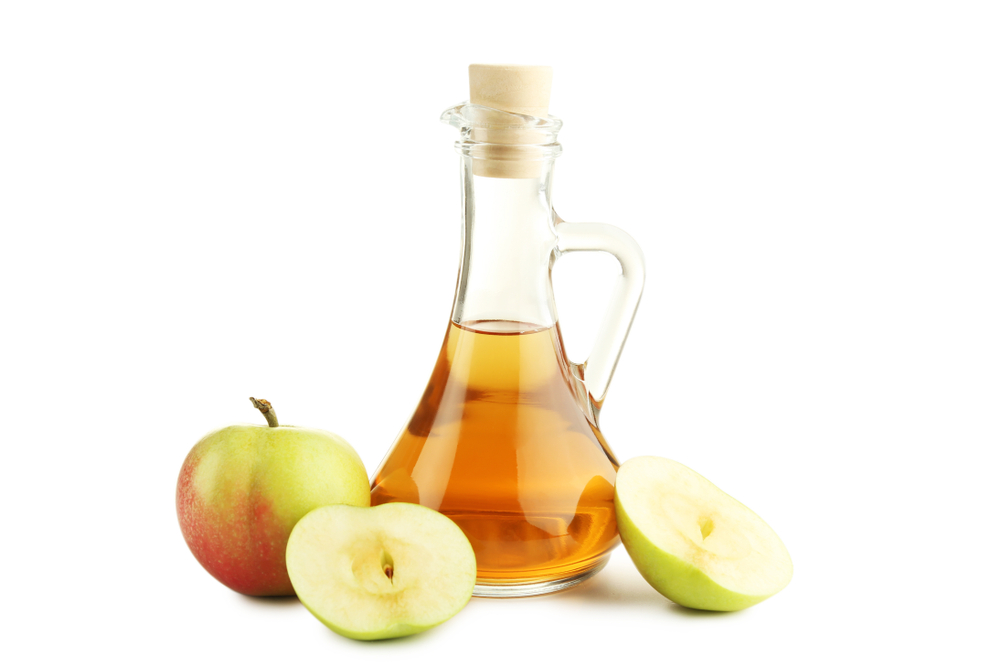
Apple cider vinegar is made from fermented apple juice. Essentially, it’s vinegar with beneficial bacterial content and yeast (which is used to make beer). For anything you would use vinegar, apple cider vinegar is a suitable substitute, from salad dressing to homemade cleaning products.
Research
Although alternative medicine doesn’t get as much attention in research, ACV is a notable exception. The National Institutes of Health’s “PubMed” database lists 107 research papers on ACV, and the pace of new research is accelerating. Starting in 2015, there were at least five new papers a year, and 2021 boasted 21 new papers! There are even six papers specifically about using ACV to improve chicken health.
Using the available research, I wanted to get evidence-based answers to these questions:
- Is ACV safe?
- Does ACV do anything?
- How much ACV should I give my bird?
Is ACV safe?
When used in the dilutions described in the studies I reviewed, there were no reported ill effects from ingesting ACV.
Does ACV actually do anything?
I reviewed research that is most relevant to bird owners. First is a study on the impact of ACV on kidney health, Newcastle disease (a virus), and intestinal health.
Vinegar significantly reduced blood urea nitrogen levels in the treatment groups compared with the control group. [Note: Lower blood urea nitrogen levels indicate healthier kidney function]
[…]
There was a significant increase in the level of antibody titre against Newcastle disease virus by haemagglutination inhibition test in the groups receiving vinegar in comparison with control group.
[…]
Compared with the control group, the villus height and intestinal crypts depth significantly increased in the groups receiving apple cider vinegar. [Note: Both of these measures are indications of intestinal health]. In conclusion, dietary supplementation with apple cider vinegar has beneficial effects on performance, immune response and small intestine histomorphology in broilers.
Effects of dietary vinegar on performance, immune response and small intestine histomorphology in 1- to 28-day broiler chickens—Veterinary Medicine and Science—May 2021
This next study looks at coccidiosis, a common parasitic infection. Note that “broiler” is a term for a chicken raised for meat.
Broiler in the control groups showed clinical signs of coccidiosis (blood in feces) and the number of coccidial oocytes in feces increased with time. In the vinegar group, no clinical signs of coccidiosis were observed.
Anticoccidial Effect of Apple Cider Vinegar on Broiler Chicken: An Organic Treatment to Measure Anti-oxidant Effect—Polish Journal of Veterinary Sciences—May 2018
I saved the most complicated one for last. This paper requires a deeper understanding of cell biology, but I’ll attempt a simplified explanation. In this study, they took monocytes (white blood cells) and cultured them in a medium containing ACV. Then they introduced a series of harmful bacteria: E. Coli, Staphylococcus aureus, and Candida albicans. They measured the presence of cytokines, which stimulate the immune system to fight infection. A lower amount of cytokines means the pathogen has been weakened, triggering a lower immune response. Still with me?
It’s important to note that this was not a test on animals but a test of the anti-bacterial properties of ACV.
Monocyte co-culture with microbes alongside ACV resulted in dose dependent downregulation of inflammatory cytokines (TNFα, IL-6). Results are expressed as percentage decreases in cytokine secretion comparing ACV treated with non-ACV treated monocytes cultured with E-coli (TNFα, 99.2%; IL-6, 98%), S. aureus (TNFα, 90%; IL-6, 83%) and C. albicans (TNFα, 83.3%; IL-6, 90.1%) respectively. [Note: The percentages show reduction in two different cytokines, ranging from 83% to 99.2%]
[…]
The results demonstrate ACV has multiple antimicrobial potential with clinical therapeutic implications.
Escherichia coli, Staphylococcus aureus and Candida albicans; downregulating cytokine and microbial protein expression—Scientific Reports—29 Jan 2018
How much ACV should I give my bird?
A diluted solution of 1% ACV is commonly recommended. These research papers tested anything from 1% to 3% concentrations on chickens with no negative consequences.
Creating a dilution is easy if you’re fortunate enough to live in a country that uses the metric system! But I’ll offer some advice if you don’t have metric measuring implements.
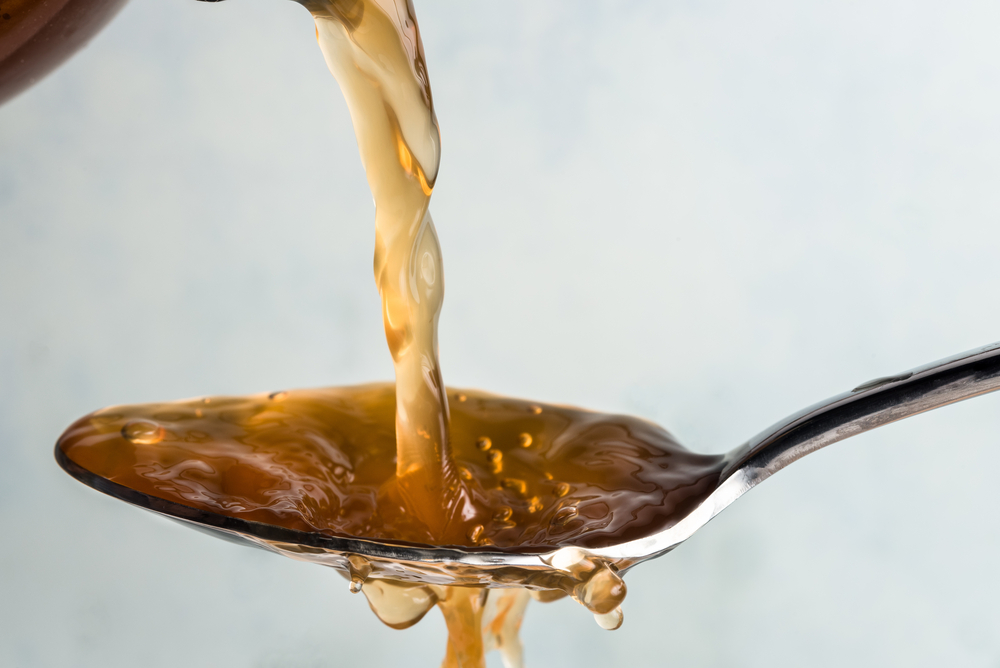
The first step would be measuring the amount of water in your bird’s water dish. Let’s say it works out to 250 ml or 8 ounces.
Metric:
- 250 ml x 1% = 2.5 ml ACV
Measuring such a small amount is difficult, but some options exist. If you have a syringe, note that 1 cc is equivalent to 1 ml. Alternatively, you can create a larger batch of ACV water and keep it refrigerated.
Imperial:
- 8 ounces x 1% = 0.08 ounces
The power of Google can help translate this into something easier to measure, such as ½ teaspoon. You can safely double or triple this concentration.
What to buy
Most grocery stores will carry at least one brand of ACV, and some may have organic, unfiltered, and raw versions. Turns out there’s evidence that the organic versions have a more diverse range of beneficial bacteria. Whether that translates to better outcomes is not clear, although products that are less processed are often healthier.
This study has demonstrated that the microbiota of the organic apple cider vinegar is more heterogeneous than that of conventional apple cider vinegar, which may influence the chemical composition and sensorial quality of vinegars.
Comparison of Cultivable Acetic Acid Bacterial Microbiota in Organic and Conventional Apple Cider Vinegar—Food Technology & Biotechnology—March 2016
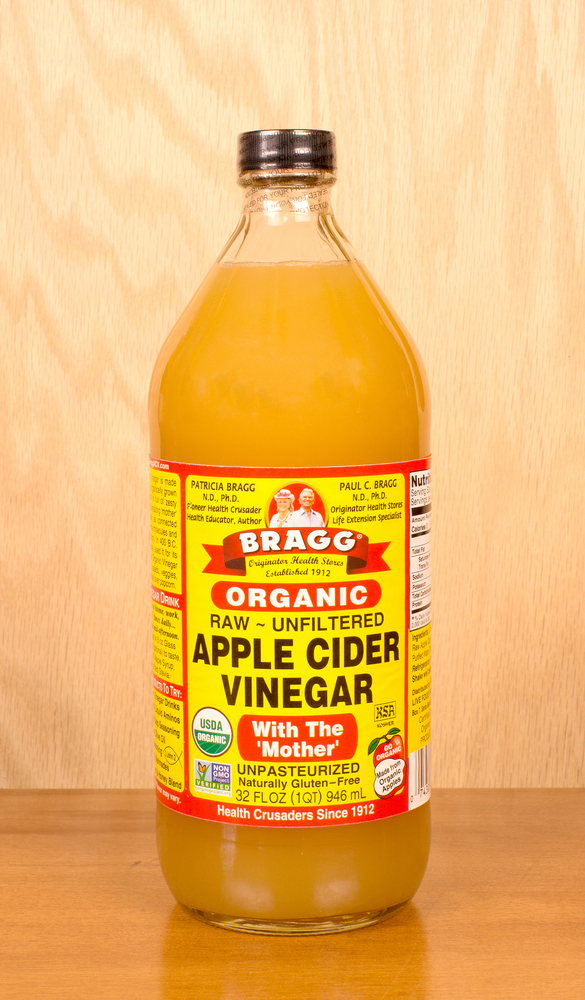
Comic relief
The US Supreme Court isn’t always weighing in on life-or-death matters. In 1924, it took up the case of confusingly labelled bottles of apple cider vinegar in United States v. Ninety-Five Barrels Alleged Apple Cider Vinegar.
Conclusion
Although ACV doesn’t cure all the ailments that the internet thinks it does, it’s a safe, preventative suplplement that has valuable, proven effects.


